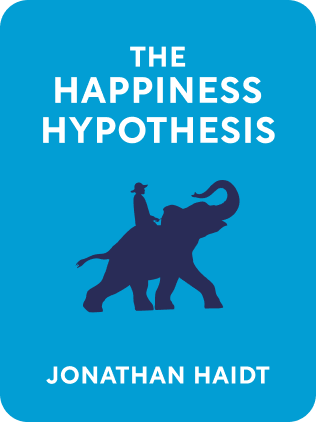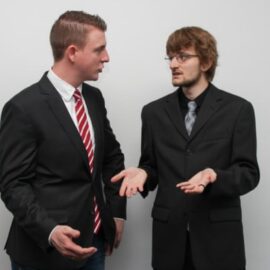

This article is an excerpt from the Shortform book guide to "The Happiness Hypothesis" by Jonathan Haidt. Shortform has the world's best summaries and analyses of books you should be reading.
Like this article? Sign up for a free trial here .
What is the psychology of human sexuality and how does it relate to love? Why do humans fall in love? What is the difference between passionate and compassionate love?
Human sexuality psychology is like that of no other animal. Human sex is not solely for reproduction and fathers actually fall in love with their mate and child. Why are we so different? It’s because of the child development process.
Keep reading for more on the psychology of human sexuality.
Psychology of Human Sexuality
Our parents are not the only figures with whom we form close and lasting attachments. Research shows that our childhood attachment styles carry forward into our adult romantic relationships, setting the pattern for how we form bonds with other people for the rest of our lives. Human sexuality psychology is unlike that of any other animal.
Human sexuality differs from the sexuality of other animals. Unlike with animals, human sex is not solely for reproduction, and fathers fall in love with their mates and their children. Why are we so different?
Our large brains may provide the answer. Our settlement in communities made it advantageous for us to develop tools like language, which required larger brains. But these large brains on infants would have made it difficult for women to pass them through the birth canal.
But the evolutionary process found a way around this—human infants, almost uniquely among animals, are born with their brains highly underdeveloped. While this enables women to pass them safely during birth, it renders human infants helpless and requires their mothers to provide constant care; they cannot survive otherwise.
This means that males, if the survival of their genes is the ultimate evolutionary goal, must play a significant role in protecting the mother and child. This is the evolutionary root of the psychology of paternal love and affection, as well as sexual jealousy by the male for the woman. It explains the curiously close bond between parents, a behavior that is nearly unmatched in other species.
Passionate and Companionate Love
These basic evolutionary truths about the psychology of human sexuality, however, have been distilled into some modern notions about romantic love, namely that it is passionate and eternal. But the real picture of romantic love is more complicated than this. Love researchers identify two types of romantic love—passionate love and companionate love
Passionate love is the all-consuming kind that new lovers fall into and is often romanticized in songs and films. It is addictive, triggering dopamine releases in the brain just as narcotics like heroin and cocaine do. And like all drugs, it can lead to withdrawal symptoms; the highs eventually wear off as your body develops a higher tolerance. When we are in the throes of passionate love, the elephant is in full stampede—with the rider gleefully spurring her along.
Companionate love, on the other hand, is the stable kind of love we feel for those whose lives are inextricably linked to ours. It is based on caregiving and attachment. These are the lasting bonds that sustain marriages for decades and give us the kind of rich and fulfilling relationships that form the bedrock of so much of our happiness. Passionate love may well grow into companionate love; and the best relationships contain a mixture of both. But companionate love is what our most durable and lasting relationships are made of.
Love and Philosophy
Even though today’s popular culture celebrates romantic love, philosophers and theologians of an earlier age were skeptical about its merits. Eastern traditions often downplayed the importance of romantic relationships, with Buddhist teaching viewing it as yet another psychological attachment that one needed to deny oneself in order to reach enlightenment. Confucianism, meanwhile, saw love as interfering with the more important values of filial piety and proper social hierarchy.
The philosophers of ancient Greece also disdained romantic relationships. Prizing reason (the rider) above all else, thinkers like Plato believed that romantic love was an intoxicating spell that turned a rational man into an irrational beast. For the Greeks, love was not just trifling—to fall in love and place one’s happiness in the hands of another was akin to self-enslavement, something that was deeply corrupting to the dignity of the individual.
Much of this ancient moralizing about the dangers of sex and romance seems to be more about social control—especially of the young by the old—than about any higher principle. Young people tend to flaunt society’s rules when they’re in the throes of romantic love, so it made sense for ancient thought leaders to try and discredit the idea of love entirely.
But we know now that attachments to others through marriage and love are intimately linked to human happiness. The ancients lacked the insights of modern psychology that we now enjoy. Therefore, we should embrace attachment and love, confident in the knowledge that we are doing ourselves a great psychological disservice by avoiding them.

———End of Preview———
Like what you just read? Read the rest of the world's best book summary and analysis of Jonathan Haidt's "The Happiness Hypothesis" at Shortform .
Here's what you'll find in our full The Happiness Hypothesis summary :
- How your emotions determine how satisfied you are in life
- Why you need to struggle in order to succeed
- How to create your own happiness






